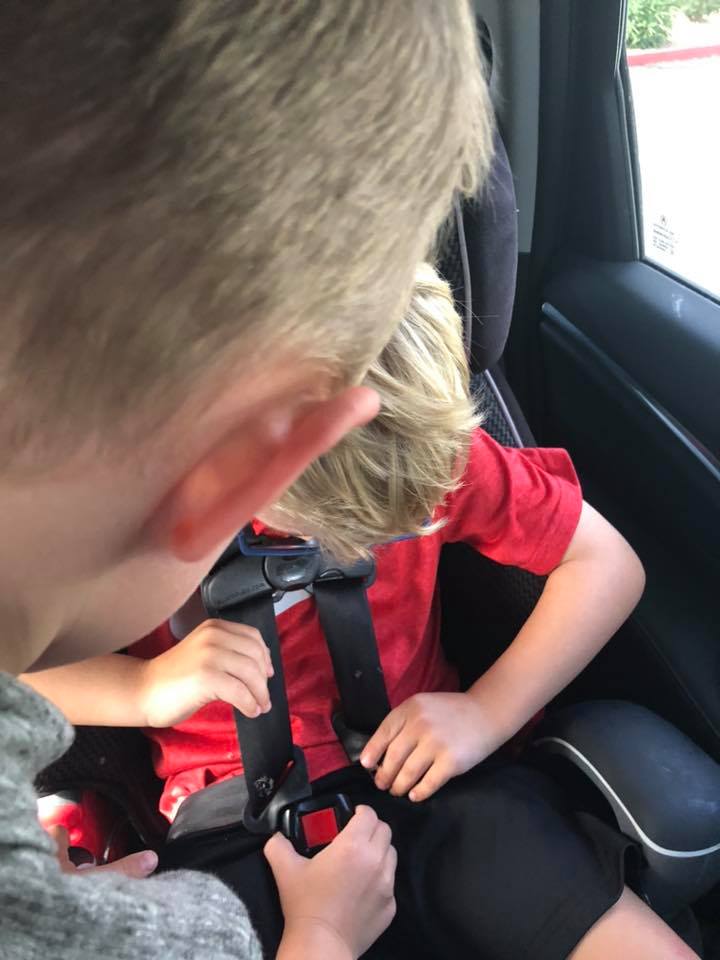What Siblings of Children With Disabilities Can Teach Us
“If you want to know how to treat a child with a disability, watch their sibling.” –Author unknown
One day after therapy, my two boys and I were getting into our blazing hot car. My oldest son, who happens to have Down syndrome, put his hands into the straps on his car seat. I instinctively said, “good job!” and proceeded to continue buckling him in because he is not yet able to completely buckle his five-point harness on his own.
His younger brother immediately stopped me and moved my hands. He said, “No, let him do it. He can do it!”
Then he said to his brother, “I’ll teach you, watch me.” My older son got the top part of his buckle on his own, to which his brother exclaimed, “Good job!” His voice was filled with pride.
After trying to convince my youngest son to simply let me do the rest because it was hot and I just wanted to get home, I realized I wasn’t going to win with him. He wanted to teach his brother so his brother could do it on his own.
After about five minutes of my youngest son showing his brother how to do it and cheering him on, my oldest son also just wanted to get home. His brother honored that choice and said, “OK, I’ll teach you again when we get home and then you can do it all on your own.”

I admit, sometimes I rush. Sometimes, I do things for my son without giving him a chance to try to do it on his own first. When I rush, I am robbing my son of opportunities to grow his independence and self-confidence.
At that moment, my youngest son reminded me to have more patience. He reminded me to stop and wait because his brother deserved the opportunity to try to do it on his own. My 5-year-old son reminded me to teach rather than do.
This school year is the first that both my boys are together at the same school. My youngest son has wanted to go to the same school as his older brother since his brother started preschool. Fortunately, his older brother is included at our neighborhood school where they are able to attend together.
The highlight of my younger son’s first week of school (and mine too) was when he got to see his brother at school for the first time and give him a hug. The happiness and pride in his voice at pick-up that day is a moment I will never forget.
Sibling relationships are fostered by being a part of the same school community, sharing school experiences and seeing each other during the day. Inclusive education provides opportunities for students to attend the same school as their siblings. It also allows siblings of individuals with disabilities to teach the school community how to best treat their sibling, and others with disabilities — with kindness, respect and patience.
Siblings of individuals with disabilities can be valuable teachers. They often just “get it” because they lead with love and understanding. My son has learned how to treat his brother by living in our home. We celebrate little victories, we try again and again however many times it takes, and we focus on our strengths. He sees what his brother can do rather than what he is not yet able to do. He talks to his brother respectfully and asks his opinion. He includes his brother and looks up to him in the same way many younger brothers do with their older brother.
He also shows the same patience and kindness to his fellow classmates.
My son and other siblings of individuals with disabilities are leaders. Siblings are teaching their peers. Siblings are helping to create more inclusive school communities.
So the next time you need guidance on how to treat my son with Down syndrome, watch his younger brother.
Getty image by Moisseyev.

